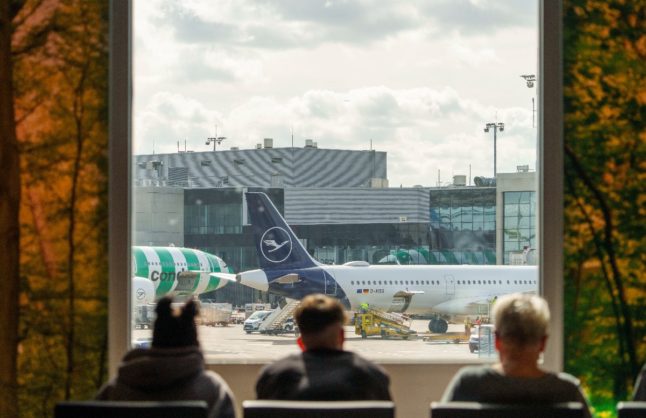There are a range of reasons why most things are cheaper in Germany than in Switzerland.
While there are some exceptions to this – the most notable one being petrol – generally speaking you pay a premium on goods purchased in Switzerland.
EXPLAINED: Why is Switzerland so expensive?
If you shop in Germany, you can also save on VAT, which is generally 19 percent and added to most goods.
Here’s what you need to know.
What are the tax rules for shopping in Germany?
Residents of Switzerland, as a non-EU country, do not need to pay VAT in Germany on purchases over 50 euros.
Your country of residence rather than nationality is important here.
Therefore, a German living in Switzerland and shopping in Germany does not need to pay the tax.
A Swiss living in Germany however would need to pay the amount.
Importantly, you need to physically be in Germany when you make the purchase.
In order to qualify for the tax exemption, you must bring the goods back to Switzerland with you.
The specific rules for this are laid out by German Customs here, but they need to be either in your carry on or checked baggage, or in a car that you are travelling in personally.
These rules are to ensure people are buying the goods for themselves rather than intending to sell them on.
What kind of goods?
Goods bought in Germany and taken back to Switzerland are exempt from VAT.
You will generally however be required to pay tax on services rendered or completed in Germany.
For instance, bus or train tickets in Germany, restaurant bills, hotel stays, massages etc.
There are also a range of rules which apply to vehicles.
If you are getting your car repaired, filling up with petrol, affixing bumpers, mirrors or other additions or even getting a car wash, you will need to pay VAT.
How do I get the money back?
Unfortunately, you do not get a discount at the place of purchase.
Instead, you need to claim the money back after you have purchased the product on which you paid the tax.
In most large stores or shopping centres, you will be able to do this on site.
You need to have a copy of the receipt and fill in the VAT refund form (Ausfuhrschein) with your name, address and Swiss residency permit number.
You can get one of these forms at larger stores or you can download it and print it here.
You will need to do one for each invoice.
Once you have done that, you can take the completed form to the German customs office (Zoll), which you can find at most border crossings and get the paper stamped.
Then, you need to return the paper to the place of purchase, where they will issue with a refund of the VAT.
Some stores require you to return after three months, some six and some 12, so be sure to check the store policy.
Note that some online stores will automatically deduct the VAT if you have a Swiss delivery address.
Cost of living in Switzerland: How to save money if you live in Zurich
One thing to keep in mind however is that Switzerland charges its own VAT, which is either 2.5 percent or 8 percent. More on that below.
What’s with all this paper?
For anyone who’s spent even a few hours in Germany, the country’s reluctance to embrace digital methods of payment and record keeping is clear.
While cash remains king in many stores and restaurants, claiming back money from shopping in Germany is also a paper-heavy endeavour.
Fortunately for people not so keen on paperwork, a change is afoot – although exactly when it will take place remains unclear.
In February 2022, the German government announced it had kicked off a project to make a digital export certificate possible.
In addition to saving time and paper, the government indicated it expected to save around 6.2 million euros in personnel expenses as around 100 customs officers are currently assigned to the Swiss border alone.
No deadline has been given for when the change will come into effect.
Cost of living: How to save on groceries in Switzerland
Swiss customs rules
When bringing goods into Switzerland, you will need to pay VAT if the amount exceeds 300 francs.
While border patrols are rare, those who make a habit of exceeding this amount – even if it is for goods for personal use – run the risk of falling foul of the authorities.
There are several different rules in place for bringing in different items, including meats, cheeses and alcohol.
The limits for each of these items can be found here.
Keep in mind that while the CHF300 applies now, Switzerland is set to reduce this to CHF50 in the future – although final approval of this has not yet been secured.
Tax change: Switzerland to introduce 50 franc limit on cross-border shopping



 Please whitelist us to continue reading.
Please whitelist us to continue reading.
Member comments